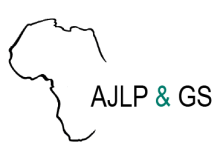Resource information
In Africa, particularly in Senegal, the issue of gender in land governance remains an equation when it comes to access to land. In a number of West African countries, the issue of gender and land tenure is an ongoing one, insofar as the same obstacles have been identified for vulnerable groups, women in particular. In reality, access to land resources remains very limited for women for several reasons. As far as legislation is concerned, equal access is enshrined both at national level in constitutional and legislative provisions and at international level in conventions and charters. In practice, however, it comes up against traditional beliefs. These realities mean that women occupy a secondary position in terms of access and therefore have limited property rights. In Senegal, the 2001 Constitution enshrines equality between men and women, as does the Family Code, which governs inheritance and reserves an important place for women in this respect. In the north of the country, in the river valley, access is also a problem, as most of the women confirmed in the study carried out in the area. It's a problem that highlights the gap between legislation and practice, which is justified by socio-economic factors. However, efforts are being made to re-establish equality in practice through the creation of women's groups that organize themselves around consensual arrangements for the use and exploitation of land resources.The livelihoods of many people depend on equitable and secure access to the land resources of land, fisheries and forests. Secure access to these resources is essential to eradicate hunger and poverty, support sustainable development and improve the environment. Strong, open and transparent partnerships have been established with countries, civil society, the private sector, academia, international organizations and other UN agencies. These partnerships are the starting point for implementing changes in land governance on a global scale.


